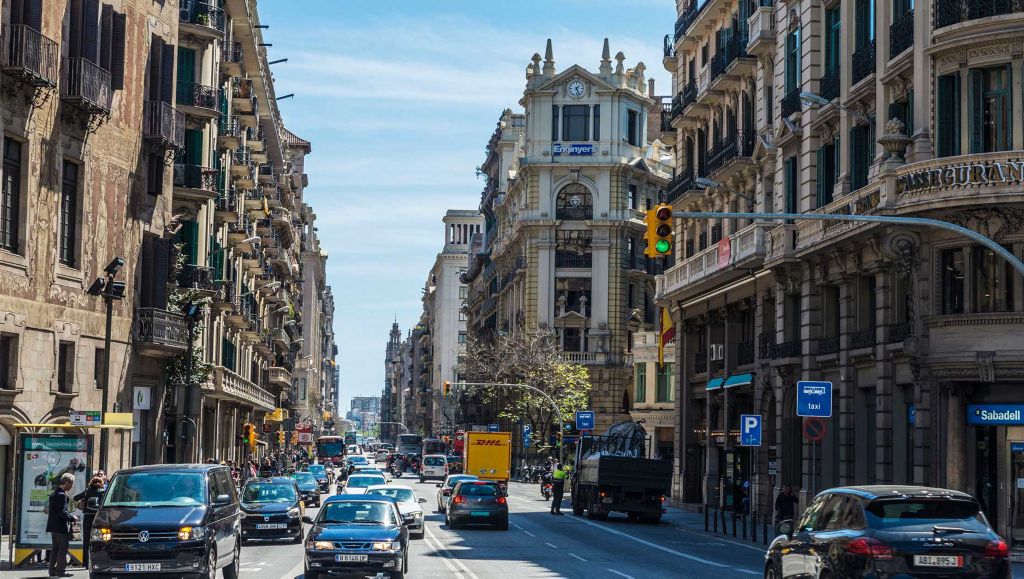World-cities push to reduce air pollution


Paris, Madrid, Athens and Mexico City will stop the use of diesel-powered cars and trucks by 2025. And other major world-cities are following suit with expanded low-emission zones and toll charges.
The exhaust problem is definitely global, the World Health Organization, WHO, states that around three million deaths each year are linked to exposure to outdoor air pollution.
The figure for Europe is around 470 000 premature deaths per year according to the European Environment Agency. It is people in urban areas that are especially at risk – and the peril is not limited to elderly, or people suffering from respiratory diseases. Exhaust gases, and especially fine particulate matters, are even hurting children’s cognitive development.
Case study: effects on children in Barcelona
Jordi Sunyer, Head of the Child Health Programme at ISGlobal, led a study that looked into traffic-related air pollution and the effects on children attending school in Barcelona.
The results are highly worrying, if not shocking. Children from schools in an area with high pollution had a smaller growth in cognitive development than children from schools in low polluted areas.
"The results of our study were strong and robust. The growth of several cognitive functions during school age is attenuated in relation to the exposure level of traffic pollutants in the school air, Jordi Sunyer says. Barcelona has a dense structure and a high density of traffic with 7,000 cars per square kilometre compared to 2,000 in London. So, Barcelona is a good case study and the results can be translated to many other areas."
The study included 2,715 children, aged 7-10 years, from 39 schools in Barcelona exposed to high and low traffic-related air pollution. The children were tested four times during a year and corresponding measurements of air pollution (nitrogen dioxide, NO2, elemental carbon, EC, and ultrafine particles, UFP 10-700nm) was measured simultaneously both in the schools’ courtyards and inside the classroom. The cognitive development of the children was measured by several tests, among them assessments of their working memory and inattentiveness.
"Acute effects of air pollution"
The results of the study concern children whose brains are under development. But research suggests that at the cognitive abilities of the elderly also can be affected by air pollution.
"We have found acute effects of air pollution on attentiveness. These could be also occurring in adults though there is not any data yet. In elderly, there are many cohort studies showing an increase in the cognitive decline related to air pollution, and several studies have related air pollution with Alzheimer", Jordi Sunyer says.
The City of Barcelona has reacted strongly to the research report. The city is making changes to the city plan by introducing superilles (super blocks with restricted vehicle traffic) and expanding pedestrian and bicycle areas as well as rerouting heavy traffic. All while, improving public transport and especially the bus service by creating for example dedicated bus lanes and park and ride transfers from private vehicles to public transport.
Guidelines for a wider use of sustainable buses are also drawn up in the Urban Mobility Plan. Electric minibuses will be used in neighbourhoods with mobility difficulties. There are also pilot tests being conducted with electric and electric hybrid 12-meter buses.
The changes are a step in the right direction, Jordi Sunyer relates.
"I understand any city has to fit a tailored strategy of different actions. There is need to reduce traffic, apply electrification and abandon carbon related fuels. And most importantly, eliminate traffic around schools", he says.
Reducing emissions and noise-levels in cities
Volvo Buses believes the transition from commuting by car to public transport is a good start. Volvo Buses is dedicated to developing and supplying pioneering sustainable solutions to meet these demands.
Electromobility is a cornerstone in this transformation, as it allows silent and emission-free operation in sensitive and environmentally threatened areas.
Reduced emissions and noise levels will also open up significant innovations including indoor bus stops, or even bus stops placed within residential or commercial buildings. This opens up new possibilities for city planning.
"We believe electric bus systems are the future of urban public transport, as environmentally clean and comfortable as a tram or light rail, but at a fraction of the overall cost. As major cities look to improve air quality, reduce noise and future-proof its public transport, electric bus systems have great potential to be part of the solution", says Ulf Magnusson, SVP Business Region Europe at Volvo Buses.